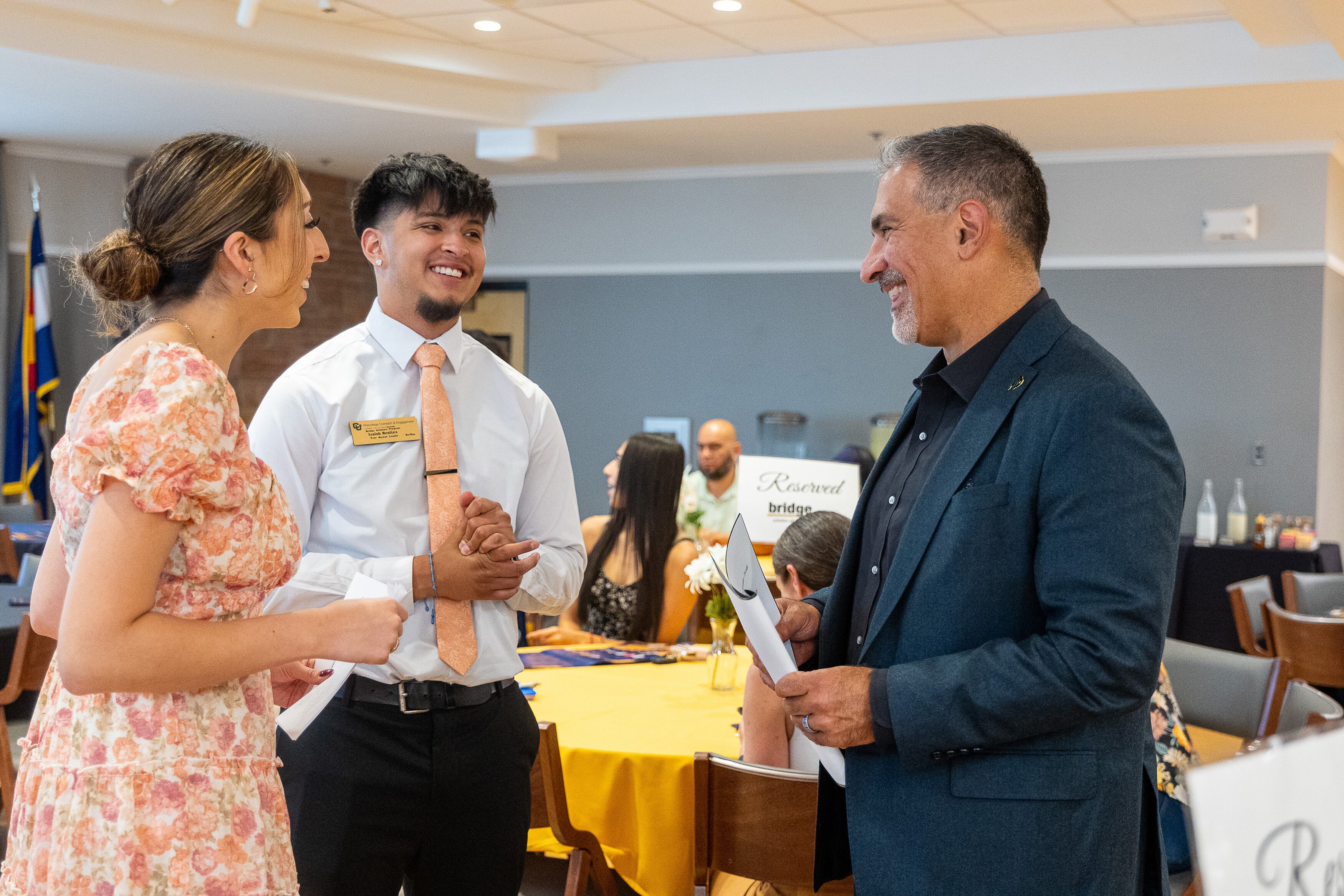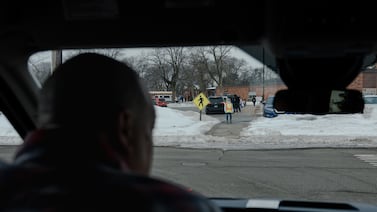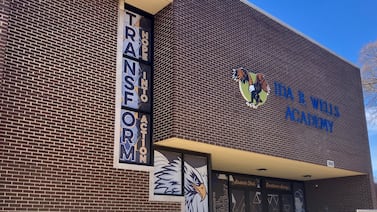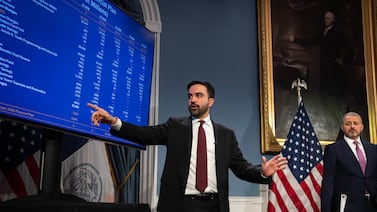Sign up for our free monthly newsletter Beyond High School to get the latest news about college and career paths for Colorado’s high school grads.
Just six weeks into the job, University of Colorado Boulder Chancellor Justin Schwartz has jumped in with both feet embracing his school spirit. As he took meetings on Tuesday, he wore a black, gold, and white pair of custom Nikes with his initials on them.
While he has embraced representing the state’s flagship institution, he’s taking a slower approach to putting his own stamp on Colorado’s largest university. He said he’s committed to ensuring that CU Boulder’s student body better represents the state, helping more students graduate, and furthering diversity, equity, and inclusion efforts.
Schwartz said that before he makes decisions he asks many questions and has numerous conversations — and that means he’s still evaluating.
“I’m very much in the sort of absorb and learn and ask questions phase,” Schwartz said.
Schwartz, 59, officially replaced outgoing Chancellor Phil DiStefano, who retired after 15 years in the role, in July. He was hired in April.
Schwartz is a nuclear engineer who has worked 30 years in higher education and was hired from The Pennsylvania State University, where he worked as executive vice president and provost.
He also spent time as dean of the Penn State College of Engineering, headed a department at North Carolina State University, and worked as a faculty member at historically Black college Florida A&M University. He earned his bachelor’s degree from the University of Illinois Urbana-Champaign and has a doctorate in nuclear engineering from the Massachusetts Institute of Technology.
Earlier this week, Schwartz sat down with Chalkbeat Colorado to discuss his short time on campus. Here’s what the new chancellor had to say:
Schwartz’s diverse experiences guide him
Schwartz credits his childhood for his commitment to ensuring the school represents the state’s diverse communities and people. He grew up in a family of college academics in Evanston, Illinois, which in 1967 became one of the first northern communities in the country to desegregate its public schools.
“The diversity of experiences I had, the diversity of relationships I had, I certainly believe contributed strongly to my success,” he said. “There is no shortage of social science that shows that diverse groups are more successful, right?”
And he wants students at CU Boulder to have that same diverse experience when they enter campus to help set them up for success.
“There’s a fundamental responsibility as a state university to represent the diversity of the state. We are the University of Colorado,” he said. “That means that we should be representative of the state. That should be a clear obligation.”
A commitment to diversity, equity, and inclusion
CU Boulder isn’t where it should be yet when it comes to representing the state’s share of students of color, Schwartz said. But it’s also not too far behind representing the makeup of the state, especially in recent years.
About 68% of the school’s undergraduate students are white, based on fall 2023 enrollment numbers. That’s compared to about 66% of Coloradans who identify as white.
Meanwhile, 13% of the school’s students are Latino, and 2.8% are Black. Comparatively, state demographic data shows 22.5% of Colorado residents are Latino and 4% are Black.
Schwartz said he wants to help students of color feel welcome and safe on campus, which will in turn help attract and retain students.
“If you have cultural success and academic success, whether it’s student, faculty, or research success, you have to begin with belonging,” Schwartz said. “And if you don’t feel safe, what do you do? You want to retreat back to your home. So if you don’t feel safe, you don’t have belonging.”
And he said he plans to lean into diversity, equity, and inclusion initiatives on campus. Driven by conservatives, DEI efforts have faced a national backlash, but he said he is committed to pursuing such programs lawfully.
“I think that should go without saying, but in today’s climate, that needs to be said,” he said.
He wants to communicate the value of liberal arts education
In a state with almost two jobs for every unemployed person, Colorado lawmakers have pushed to get students career education training, such as in trades and in-demand fields.
There’s also a need for workers in science, technology, engineering, and math fields. But a liberal arts education is still valuable, Schwartz said.
For instance, during the Iraq War, the United States needed more Arabic speakers, he said.
“In 1999 if a university said we’re going to ramp up their Arabic department, people would have said, that’s insane, you’re not training people for a useful job,” he said. “Well, turns out, that would have been the wrong assessment.”
There are also English majors who are leading universities or Wall Street firms, he said. The country needs trained thinkers and artists who enrich our lives, and liberal arts helps provide those tools, he said.
“I will strongly defend the need for large state universities to continue to offer the full spectrum of intellectual opportunities,” he said. “At the same time, I will also fully defend the need for folks going into career paths that don’t require college, because they’re both valuable.”
Jason Gonzales is a reporter covering higher education and the Colorado legislature. Chalkbeat Colorado partners with Open Campus on higher education coverage. Contact Jason at jgonzales@chalkbeat.org.






